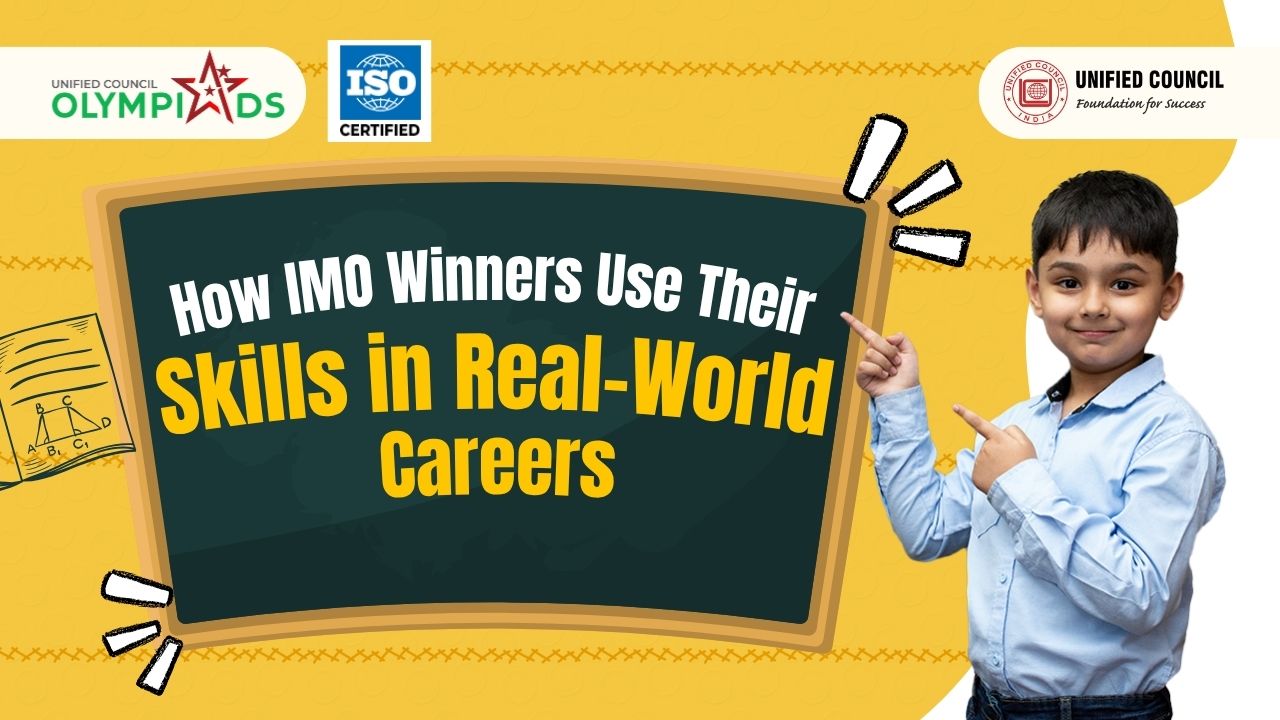
Posted at - 17-Oct-2025
The International Mathematics Olympiad (IMO) represents the pinnacle of mathematical achievement for high school students worldwide. Every year, the brightest young minds gather to solve extraordinarily complex problems under intense time pressure. But what happens after the medals are awarded and the competitions end? The skills developed through IMO preparation translate remarkably well into groundbreaking careers across multiple industries.
Participants in the International Mathematics Olympiad don't just memorise formulas—they develop a distinctive way of thinking that proves invaluable in professional settings. These students learn to:
This combination of analytical rigour and creative problem-solving creates professionals who can tackle challenges that stump their peers.
Many IMO alumni gravitate toward technology careers, where their mathematical prowess finds immediate application. Top tech companies actively recruit former Olympiad participants because they bring exceptional skills to software engineering and algorithm development.
Key roles include:
Companies like Google, Facebook, and Microsoft have dozens of IMO medallists on their teams. These professionals use their competition experience to design algorithms that serve billions of users daily. The same logical reasoning that helped them solve olympiad geometry problems now helps them optimise search engines or recommendation systems.
The finance industry highly values the analytical skills honed through international mathematics olympiad training. Quantitative trading firms and investment banks recruit IMO participants for their ability to spot patterns, assess risk, and make data-driven decisions rapidly.
Former Olympiad competitors work as:
These professionals apply mathematical modelling techniques to predict market movements, manage portfolios worth billions, and identify profitable trading opportunities in microseconds.
Many IMO winners continue their mathematical journey through academic careers. The deep problem-solving skills developed during competition years translate naturally into research that advances human knowledge.
These academics contribute by:
Several Fields Medal winners—mathematics' highest honour—first gained recognition through their International Mathematics Olympiad performances. This path from competition to cutting-edge research demonstrates how Olympiad training builds foundations for lifetime mathematical achievement.
The resourcefulness required for Olympiad success breeds natural entrepreneurs. Many former competitors launch startups that leverage their technical expertise and problem-solving abilities.
IMO alumni entrepreneurs excel because they:
Notable startup founders with IMO backgrounds have created companies valued at billions of dollars, particularly in the artificial intelligence, cryptocurrency, and educational technology sectors.
Management consulting firms prize the structured thinking that International Mathematics Olympiad training develops. Former competitors help major corporations and governments solve complex operational and strategic challenges.
As consultants, they:
The ability to quickly understand unfamiliar domains and propose elegant solutions makes IMO alumni particularly effective consultants.
Regardless of specific career paths, former International Mathematics Olympiad competitors share a common trait: they approach problems differently. Rather than accepting limitations, they search for creative breakthroughs. Rather than giving up when stuck, they try alternative approaches.
This mindset, cultivated through years of tackling olympiad problems, proves far more valuable than any specific mathematical technique. Whether designing medical devices, optimising supply chains, or creating new art forms using computational methods, these professionals apply their Olympiad-trained thinking to push boundaries.
The International Mathematics Olympiad serves as more than just a competition—it's a training ground for future leaders who will solve humanity's most pressing challenges. The skills developed there don't fade after high school; they strengthen and adapt, proving useful across virtually every field that values rigorous thinking and innovation.
What percentage of IMO participants pursue mathematics professionally?
While many IMO alumni work in math-adjacent fields like computer science and engineering, approximately 20-30% pursue pure mathematics research or academic careers. The majority leverage their skills in technology, finance, and other analytical fields.
Do you need to win a medal at IMO to have a successful career?
Absolutely not. Simply participating in the International Mathematics Olympiad demonstrates exceptional ability. Even non-medallists develop problem-solving skills that serve them well professionally. Many successful professionals participated without winning medals.
What's the average salary for IMO alumni?
Salaries vary widely by field and location, but IMO alumni typically command premium compensation. Tech and finance roles often start at $150,000-$250,000 annually for new graduates, with significant increases as careers progress.
How do employers view IMO participation on resumes?
Top employers highly value International Mathematics Olympiad experience. It signals strong analytical abilities, work ethic, and proven performance under pressure. Many recruiters specifically search for candidates with Olympiad backgrounds.
Can IMO skills help in non-technical careers?
Yes. The logical reasoning, persistence, and creative problem-solving developed through olympiad training benefit any career. Former participants have succeeded in law, medicine, writing, and even the arts, where analytical thinking provides unique advantages.